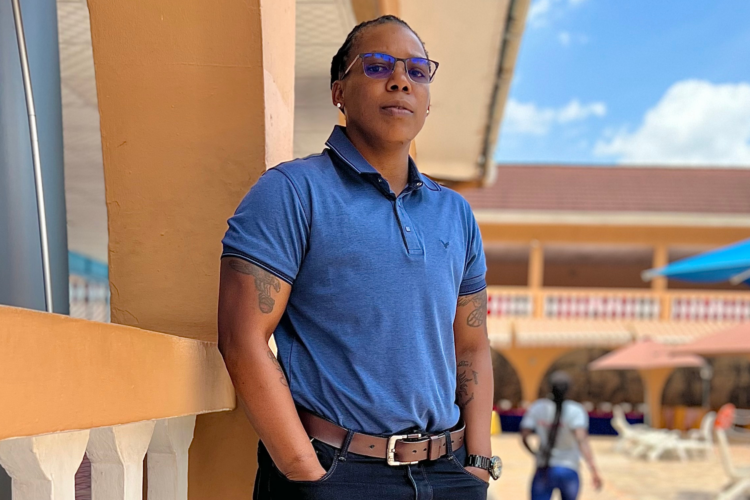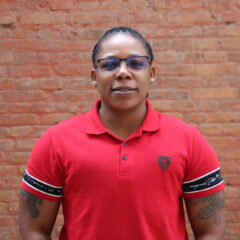27 September 2022, Kampala, Uganda – Uganda is notorious as one of the most deeply homophobic countries in the world. The systematic abuse and non-recognition of Ugandans based on their sexual orientation and gender identity are strongly driven by anti-gender opposition, notably sanctioned by the state, upheld by religion, culture and intolerant social attitudes, and emanating from colonial law enforcement.
Uganda’s legal policy framework does not formally recognize trans and gender diverse persons, and it criminalizes same-sex conduct and prohibits same-sex conduct as “carnal knowledge against the order of nature”. In 2014, also dubbed the “Kill the Gay” Bill, Uganda witnessed heightened intolerance through the passing of the Anti-Homosexuality Act, with massive support from political leaders, who formed one of the key groups promoting anti-gender opposition in Uganda. These Acts continue to legalize violence against LGBTIQ persons in Uganda and exploit homophobic sentiments to win the favor of voters. On a number of campaign trails in Uganda, hate speech was perpetrated. During the 2021 presidential elections, in which opposition leader Robert Kyagulanyi received significant support from the youth movement for change, anti-LGBTQI pronouncements were made by President Yoweri Museveni that opposition leaders were being sponsored by “outsiders”.
Religious anti-gay movements and beliefs are persistent in Uganda and have hampered the positive recognition of LGBTIQ rights and acceptance, as no major religion expresses an openly tolerant attitude to homosexuality. The cultural rhetoric has often been fronted by moralistic culturalisms, which assert that homosexuality is fundamentally un-African and only exists in the Western world, and should therefore never be accepted in Uganda. Such rhetoric further fuels societal attitudes of homophobia, transphobia and stigma towards the LGBTIQ community as a whole.
The anti-gender opposition in Uganda is similar to the anti-gay sentiments in Africa, which run counter to a history of same-sex practices across the continent. These are often fuelled by the hostile attitudes and ideas of homosexuality being “un-African” which reverberates throughout the continent’s political and other elite circles. Across the globe, despite national, historical and social development and shaping across the different movements, there is evidence against “gender ideology” through hate speech, homophobia and transphobia, among others, justifying the connection and linkages to anti-gay sentiments. This opposition has gained momentum due to the organized collaboration across various intersections of anti-gender and anti-gay groups. These are continuously re-energized by the continued criminalization of various groups, including LGBTIQ persons in Uganda, which legitimizes their theories and justifies their continued hate speech and violence.
In efforts to reduce this opposition, a number of strategies ought to be employed. One such strategy is continuous lobbying of the international community to refuse to provide funding to state or non-state actors that might deny the human rights of LGBTI persons, or threaten withdrawal of that which has already been granted. This worked well when it was implemented in Uganda after the Anti-Homosexuality Act was passed into law; subsequently, people have related the failure of the President of Uganda to assent to the Sexual Offences Act 2021 to the fact that he is afraid of the backlash from the international community. More funding could also be redistributed to directly fund the LBGTIQ movement and allies in the quest to strategize and organize against such opposition. Placing the focus on human rights language is key, for the protection of all humanity as well as strengthening solidarity within the LGBTIQ movement, rather than focusing on sectoral divisions within the movement.
Quite a number of strategies have been employed to counter the anti-gay opposition in Uganda. Coalition building was employed when the Anti- Homosexuality Act was introduced in Uganda, in which a Coalition of over 40 LGBTI, sex work and mainstream organizations came together to oppose the law. It was a key action in rallying both local and international support. Soon after the law was annulled, the coalition was dissolved after registering this significant win. Over the years, there has been massive growth in LGBTI organizing, with over 100 registered LGBTI organizations, both urban and grassroots, staffed by LGBTI persons. These have led to a lot of advocacy on various issues including aspects of HIV, legal and policy reform, and inclusion, among others. Strategic litigation has been employed to counter opposition, and despite the hostilities, there has been some progress and notable victories in court, including the annulment of the Anti-Homosexuality Act. The cases of Victor Mukasa and Yvonne Oyo v. Attorney General and Kasha Jacqueline, David Kato and Onziema P v. Rolling Stone Publications Limited and Giles Muhame, confirmed that all rights applied to Ugandans without discrimination. Policy advocacy has been carried out through the Uganda Key Populations Consortium, which has aggressively involved the Ministry of Health in Uganda in key policy development and programming and training of health workers. To improve religious inclusion, a number of LGBTI churches have been opened with LGBTI pastors. The police and judiciary have also been trained on LGBTI awareness and inclusion.
We also draw lessons from the ILGA Europe Report which has been at the forefront of understanding the anti-gender movement and its impact on the lives of LGBTI persons. This impact ranges from continued hate speech perpetrated by religious fanatics to shaming, harassment, discrimination, and violence, while being denied legal rights and equal protections, even at the family level. Trans and gender diverse persons also suffer serious economic injustices; they can be summarily dismissed from paid work and are denied family-based social welfare benefits.
We also draw lessons from other movements opposing anti-gender movements, such as the women’s rights movement, in the use of selected language for political mobilization. Reference to the advancement and protection of human rights for all is vital to advancing LGBTIQ rights. It is also imperative to document and share the lived realities of LGBTIQ persons in different opposition fora, for this can elicit empathy, which is a good starting point for conversations about the protection and inclusion of LGBTIQ persons in all spheres of life. Creating spaces and dialogue, as well as solidarity, is key to managing resistance in the development of networks.
Conclusively, and going forward as activists: we need to support, rather than tear each other down; and we need to present a united front as a movement, rather than looking at individualist gains to counter the anti-gender opposition that has a relatively strong base. We need greater empowerment of LGBTIQ persons to occupy spaces because there can be nothing about us, without us. Greater media engagement is needed for positive reporting and to begin conversations with mainstream society. We need to learn, relearn and unlearn from our different trajectories on what has and has not worked, and have a comparative analysis of how to defeat the opposition. With a united force, I am optimistic that we shall triumph over hate.






